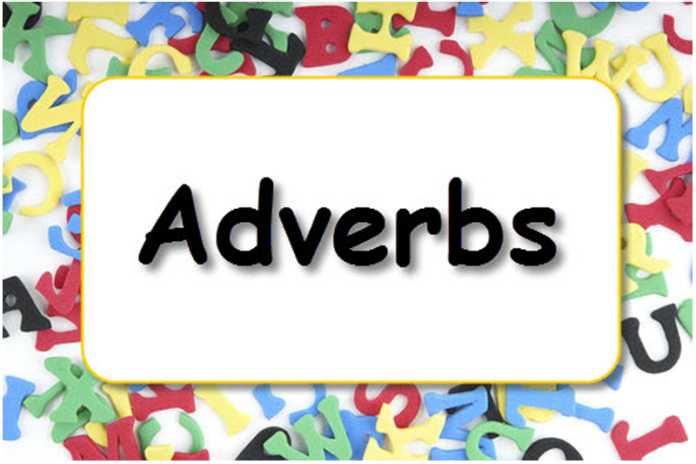Adverb
By
Mohammed Mohsin ( M.A in English Literature J.U)and B.Ed 1st Class.( N.U)
Mobile:+8801814-22 25 07/+8801850-14 97 02.
- What is an Adverb ?
- Uses of Adverb ?
- Classifications of Adverb ?
Look at the following Sentences;
(a) He walks quickly.
(b) She is a very beautiful lady.
(c) The sum can be done more easily.
(d) This is a very captivating scenery.
(e) He went right through the garden.
(f) I hate him simply because he is a liar.
(g) Unfortunately he failed in the SSC exam.
The underlined words in the above sentences are Adverbs because they modify the words/sentence(s).
Definition: The word which modifies a verb, an adjective, an adverb, a preposition, a conjunction or governs a sentence is called an Adverb. An Adverb never modifies a noun or a pronoun. This is the function of an Adjective.
Uses of Adverbs:
# An Adverb is used before and after a verb. Such as,
Rahim walks slowly.
Barking dogs seldom bite.
#An Adverb is used before/after another Adverb. Such as,
He did the work very beautifully.
# An Adverb is used before an Adjective. Such as,
She is a very smart lady.
#An Adverb is used before a participle. Such as,
This is a very charming scene
# An Adverb is placed before a preposition. Such as,
He came right through the garden.
# An Adverb is used before a conjunction. Such as,
I hate him simply because he is a liar.
# An Adverb is used at the beginning of a sentence to govern it. Such as,
Unfortunately, he failed in the examination.
# An Adverb is used at the end of a sentence to modify it. Such as,
He died unhappily.
Classification of Adverbs:
Adverbs are classified into three. Such as
(1) Simple Adverbs
(2) Conjunctive/Relative Adverbs
(3) Interrogative Adverbs.
Simple Adverbs are subdivided into many classes. As,
- Adverbs of Time;
- Adverbs of Place;
- Adverbs of Manner;
- Adverbs of Cause and Effect;
- Adverbs of Order;
- Adverbs of Affirmation and Negation;
- Adverbs of Number;
- Adverbs of Degree;
- Adverbs of Condition and Contrast;
- Intensifier and
- Down toner
Now, let’s learn in details.
- Adverbs of Time: denote the time of happening an action.
Such Adverbs are : now, then, when, early, always, before, after, daily, ever, never, soon, while, ago, already, immediately, today, yesterday, tomorrow, since, seldom, often, once, twice, again, late, afterwards, formerly, frequently, presently, instantly etc.
Examples: I am reading now. Father is going to London tomorrow.
- Adverbs of Place: denote the place where the action takes place.
Such Adverbs are: here, there, where, hither, thither, near, far, nearby, above, below, hence, away, ahead, overhead, etc.
Examples: I go there. You come here.
- Adverbs of Manner: show how an action is done.
Such Adverbs are: well, badly, clearly, ill, aloud, thus, closely, correctly, wisely, quickly, how, highly, sadly, softly, steadily, soundly, swiftly, widely, simply, suddenly, carefully, carelessly, easily, possibly, probably, fortunately, unfortunately, luckily, naturally, rightly, urgently, wrongly, etc.
Examples: He speaks wisely. Probably he is ill.
- Adverbs of Cause and Effect: show why an action is done and its effect.
Such Adverbs are: why, therefore, wherefore, accordingly, consequently, hence, thence, so, that is why, for this reason, etc.
Examples: So, let us go. I did it accordingly.
- Adverbs of Order: show the order in which a thing is done.
Such Adverbs are: firstly, first, secondly, thirdly, last, lastly, finally, etc.
Examples: Firstly, he hit me. Finally, they scored a goal.
- Adverbs of Affirmation and Negation: express affirmation and negation.
Such Adverbs are: yes, no, not, certainly, surely, perhaps, indeed, probably, possibly, nay, truly, really, never.
Examples: I shall never do it. No, he won’t go.
- Adverbs of Number: denote how much or how many of a thing happens.
Such Adverbs are: once, twice, thrice, fully, enough.
Examples: He comes here once a week.
- Adverbs of Degree: show to what extent a thing happens.
Such Adverbs are: almost, partly, rather, wholly, completely, strongly, totally, entirely, greatly etc.
Examples: He is almost dead.
- Adverbs of Condition and Contrast: express a supposition or a contrast.
Such Adverbs are: if, unless, albeit, even if, even though, although, though.
Examples: If you come, I shall help you.
- Intensifier: An Intensifier intensifies or emphasizes the action of the verb.
Such intensifiers are: actually, certainly, surely, definitely, really, absolutely, thoroughly, very much.
Examples: He is really poor.
- Down toners: down tone the action of the verb.
They are: hardly, barely, scarcely, rather.
Example: He hardly visits us.
Relative & Conjunctive Adverb
- The Relative Adverb combines two Sentences together and shows its relation to its antecedent expressed or understood.
- A Relative Adverb is called Conjunctive Adverb when its antecedent is omitted.
- A Relative Adverb makes a Relative clause. But a Conjunctive Adverb makes an Adverbial Clause or a Noun Clause. The Relative/Conjunctive Adverbs are: When, where, why and how.
- When indicates time. As,
Do you know when the Titumir Express leaves for Dhaka? (Conjunctive, because no antecedent before when)
Can you tell me the time when he goes to the office? (Relative, because the time is its antecedent)
- Where indicates a place. As,
This is the school where I read. (Relative)
Tell me where he goes. (Conjunctive)
- Why indicates a cause. As,
This is the reason why he left the meeting. (Relative)
Tell me why he failed. (Conjunctive)
- How indicates Frequency, Degree etc. As,
I do not know how it is done.
Interrogative Adverbs
When Adverbs are used to ask questions about-
- Time: When do you go to bed?
- Place: Where do you live?
- Reason: Why did you fail in Math?
- Manner: How did he do this?
- Number: How many boys are there in the field?
- Quantity: How much milk do you want?
- Frequency: How often are the pups born?
- Degree: How far is the report true?
- Duration:How long will you wait for me?
The positions of Adverbs
(a) The Adverb generally follows an Intransitive Verb:
He walks slowly.
He came early.
(b) The Adverb usually follows the Object:
He did it quickly.
I did the work boldly.
(c) The Adverb usually comes between the auxiliary and the principal verb:
I have hardly seen him there.
I shall surely go.
(d) The Adverb precedes the Adjective it qualifies:
I am very glad.
(e) The Adverb is placed first in a Sentence to govern the whole Sentence and also the Adverb emphasizes:
Unhappily he died.
Down went the boat.
(f)But Adverbs of time such as, always, seldom, never ever, sometimes, frequently etc. are placed before all verbs other than the verb to be:
He frequently told me this.
I am often busy.
(g) “Enough” when used as an Adverb follows the Adjective. As,
He is strong enough to carry the load.





















Thanks for sharing, this is a fantastic post. Much obliged. Roze Royce Landmeier
I was very pleased to uncover this great site. I need to to thank you for
your time due to this fantastic read!! I definitely loved
every part of it and i also have you book-marked to look at new stuff on your site.
Magnificent items from you, man. I have understand your
stuff prior to and you’re just extremely fantastic.
I actually like what you have received here, certainly
like what you are stating and the way through which you assert it.
You are making it entertaining and you still care for to stay it smart.
I can not wait to read much more from you.
This is actually a great website.
What’s up to every single one, it’s truly a good for me to go to see
this website, it includes important Information.
Good post. I learn something totally new and challenging on websites I stumbleupon every day.
It’s always useful to read content from other writers and use
a little something from their sites.
Very excellent. This is a self teaching method of Grammar. I have learnt a lot from this site. You can easily use this site to correct, enrich and gain efficiency in Grammar.